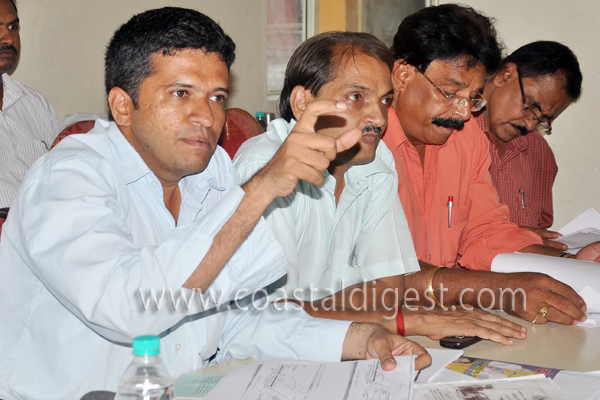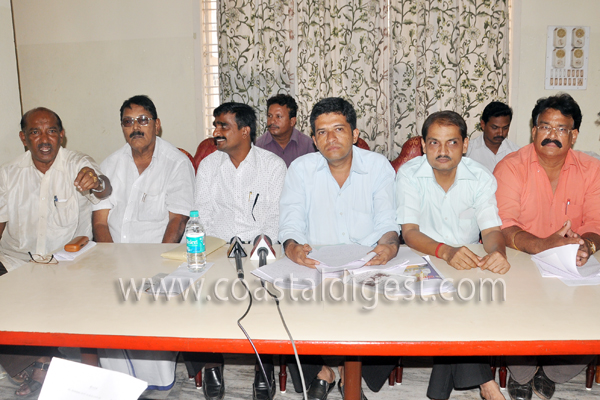
Mangalore, April 10: Supporters of Sarvottam Anchan who is contesting the Kannada Sahitya Parishad presidential elections, have alleged that rival candidate and President of the Parishad for the past 10 years Pradeep Kumar Kalkura has been acting as a dictating authority which is dangerous for Kannada and Kannada literature.
Speaking to mediapersons at a press meet in Mangalore on Tuesday, MG Hegde, JDS leader, alleged that the Parishad under Mr. Kalkura has not maintained proper financial accounts. “Mr.Kalkura in an interview to a Kannada news daily said that he has spent Rs. 9 lakhs for the Parishad from his pocket. This statement took us by surprise and when we asked for the accounts of the Parishad, all we got in return through an RTI enquiry is the accounts of Sahitya Sammelana and not the Parishad. Mr. Kalkura must reveal the accounts of the Parishad”, Mr. Hegde said.
Stating that spending money from one's own pocket for a government aided body like the Sahitya Parishad is in fact illegal, Mr. Hegde demanded that Mr. Kalkura disclose the profits earned by Kalkura Pratishthana in his term as the chief of the Parishad.
Mr. Hegde also alleged that under Mr. Kalkura, the membership campaign has also fallen prey to favouritism. “In spite of repeated appeals that membership campaign for the Parishad be fair and open for people of all castes and communities, only one community is being favoured and members are being chosen in an unfair manner”, Mr. Hegde said.
Mahesh R Naik, writer and publisher, Kallachu Prakashana also alleged that Mr. Kalkura pressurized the treasurer of the Parishad to give him signed blank cheques.
The Sahitya Parishad elections are scheduled to be held on April 29.






Comments
Add new comment